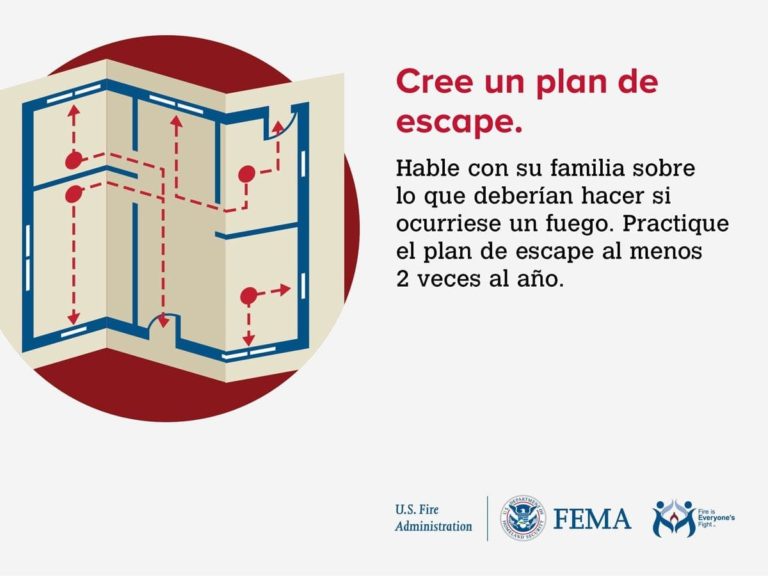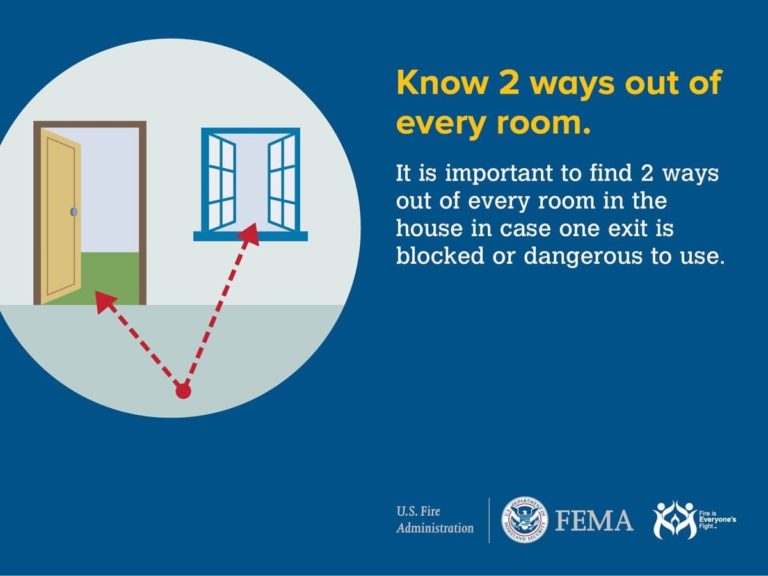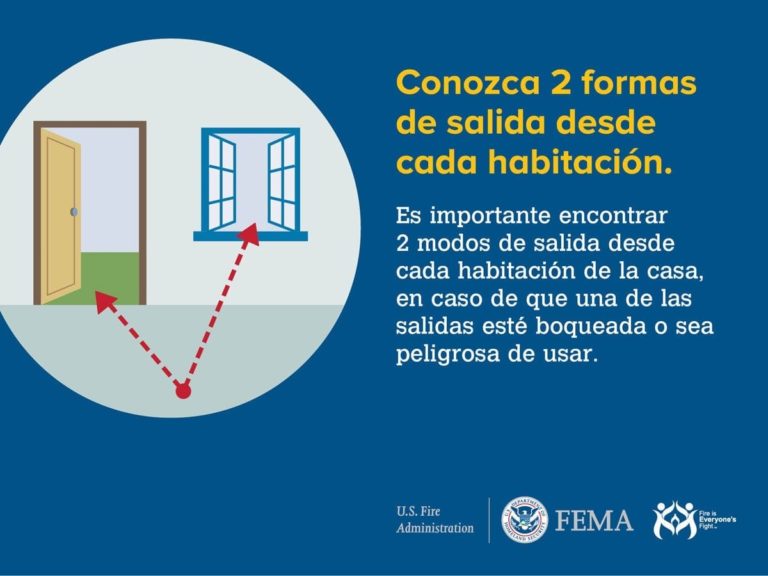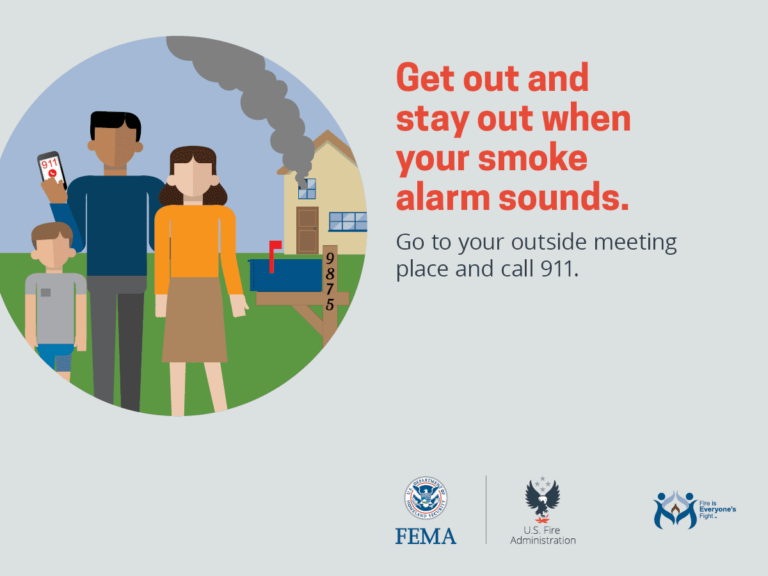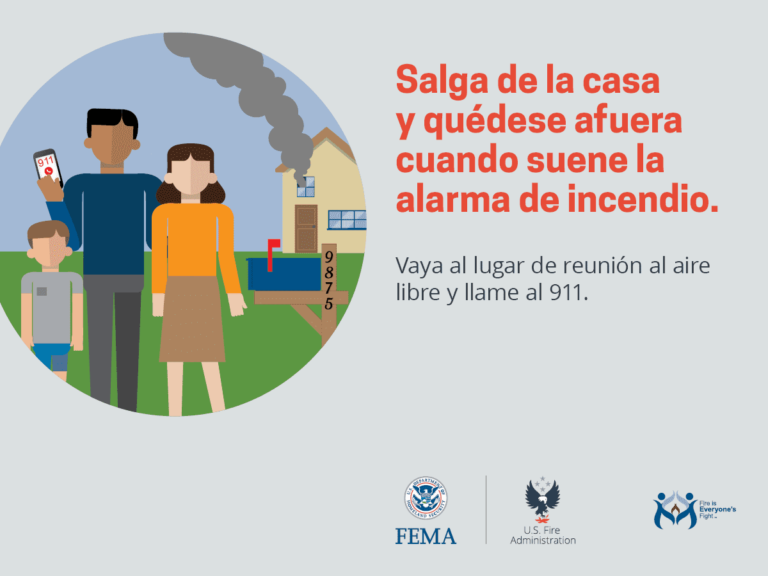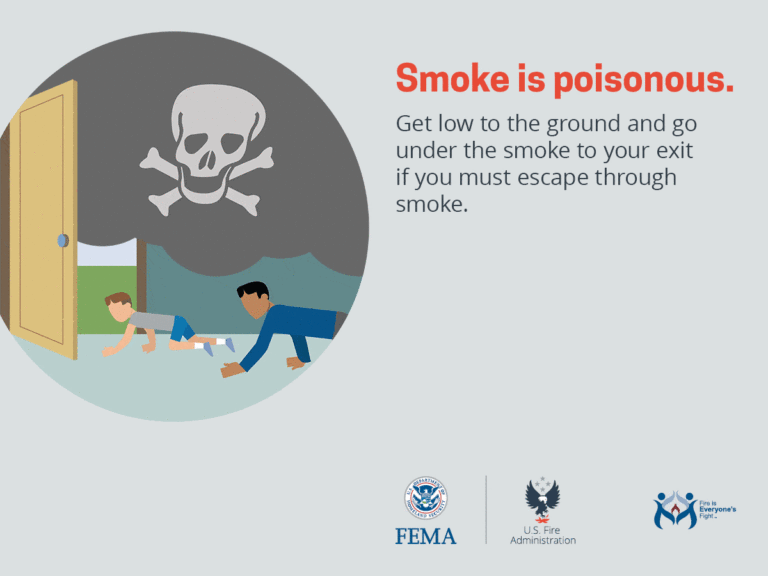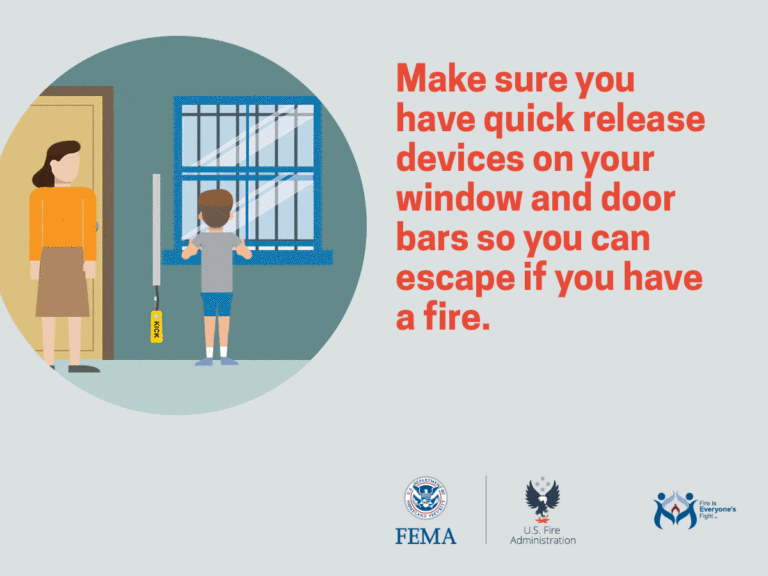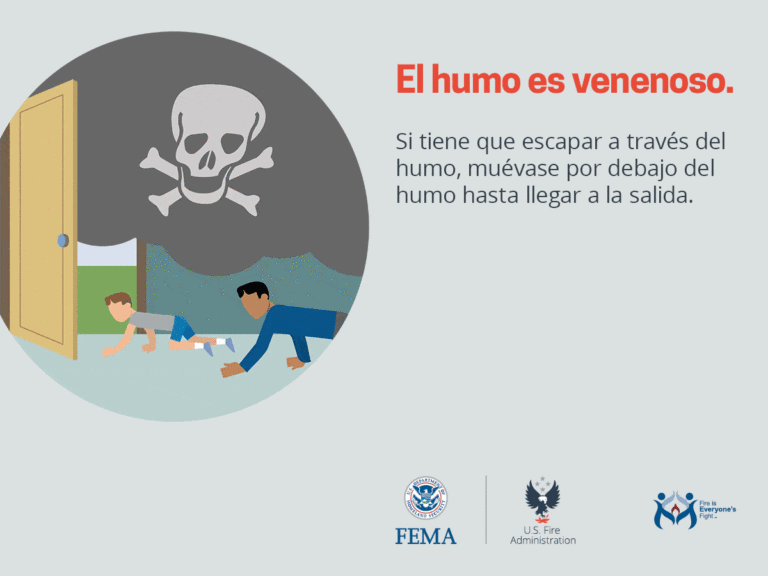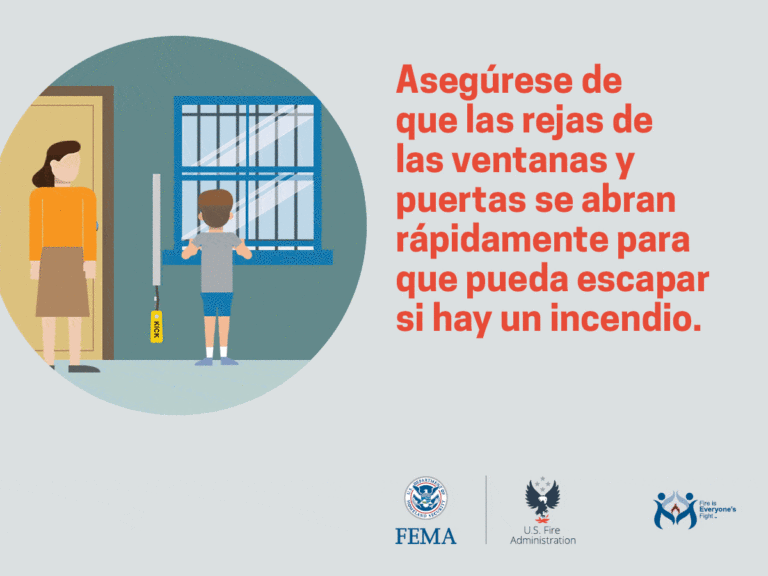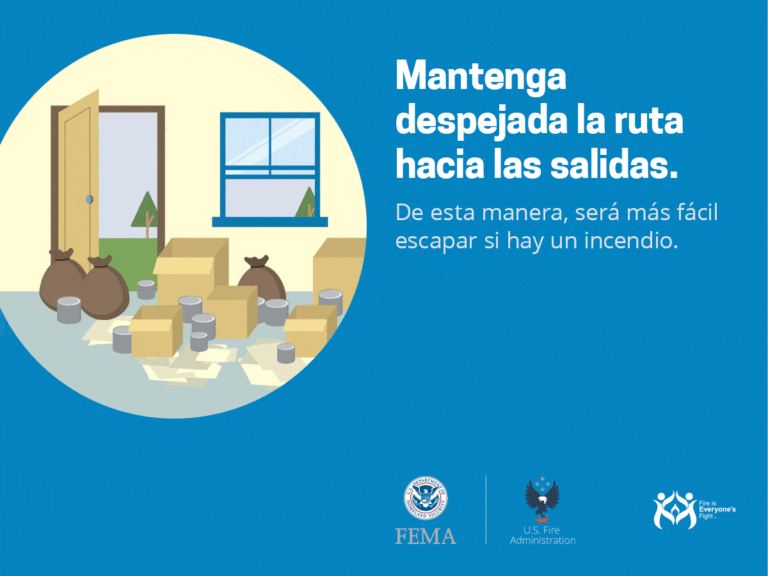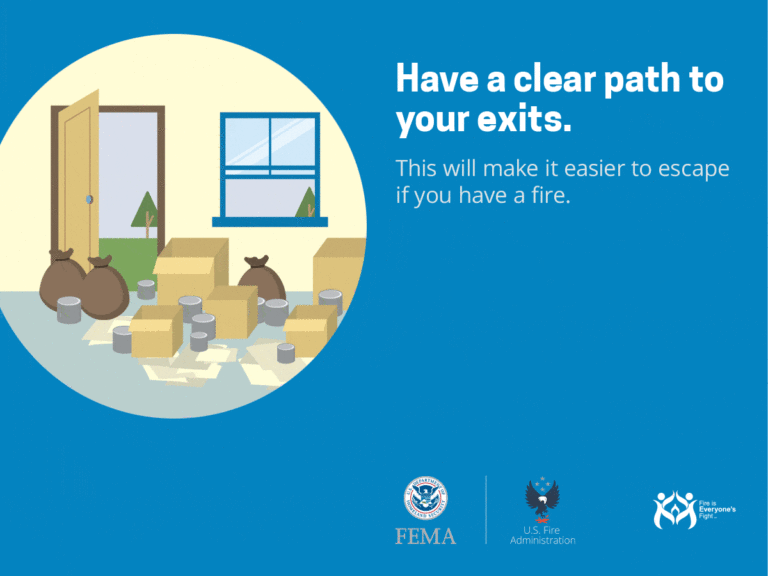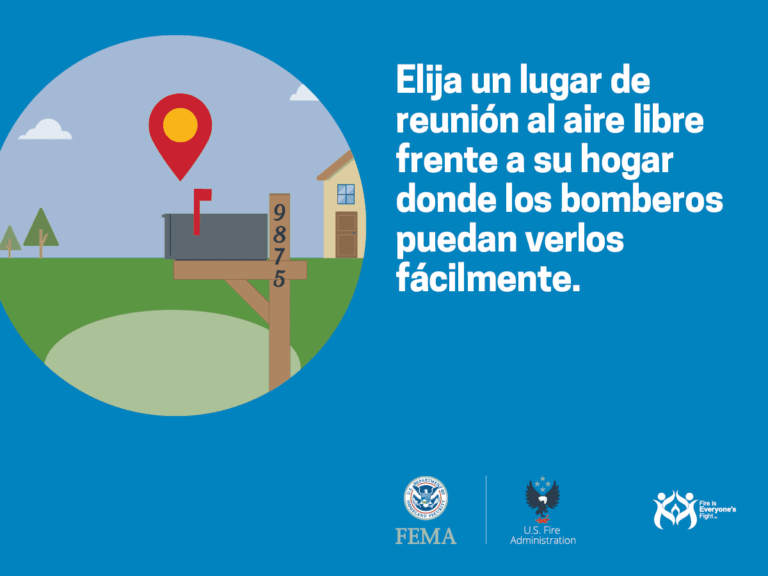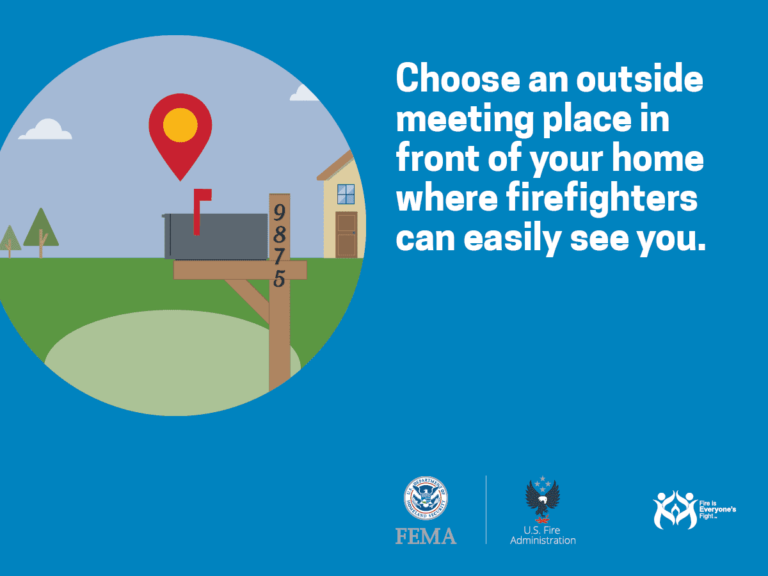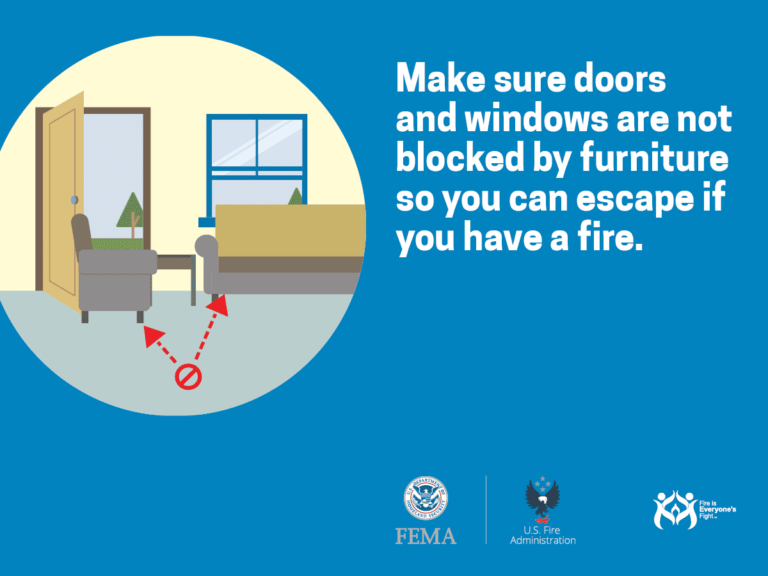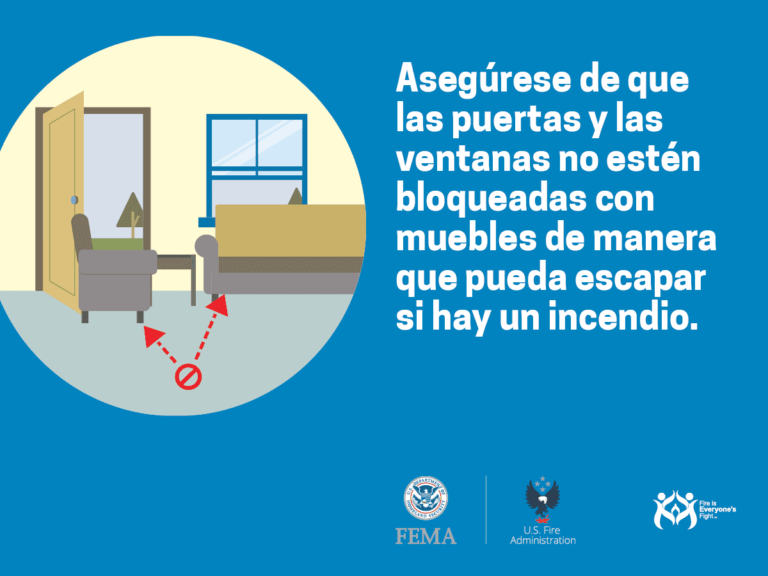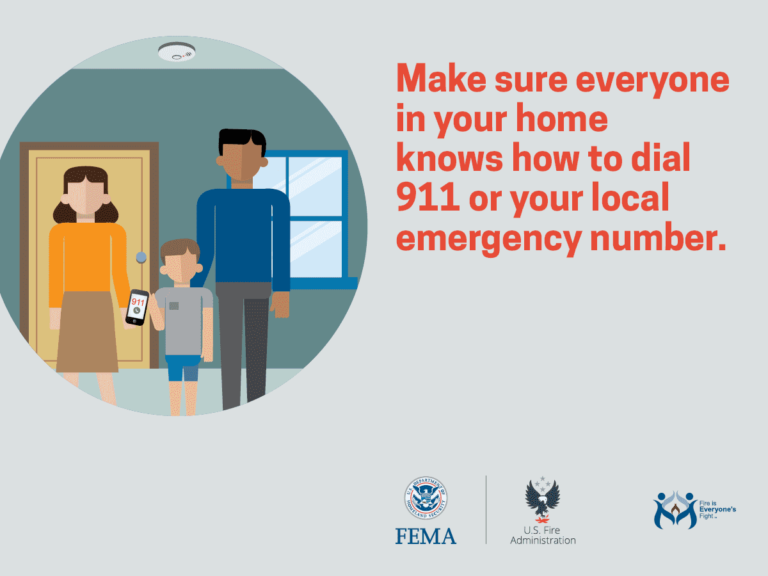Your ability to get out depends on advance warning from smoke alarms and advance planning.
Fire can spread rapidly through your home, leaving you as little as one or two minutes to escape safely once the alarm sounds. Pull together everyone in your household and make a plan. Walk through your home and inspect all possible exits and escape routes. Households with children should consider drawing a floor plan of your home, marking two ways out of each room, including windows and doors. Also, mark the location of each smoke alarm. Here are some tips for helping you with your home fire escape plan!
Get Out Fast
If there is a fire in your home, you could have less than 2 minutes to get out safely once the smoke alarm sounds.

Fire drills are important for all homes, including apartment buildings and other high-rise structures. You need to know the basics of escape planning, from identifying two ways out of every room to getting low and going under smoke, and the importance of practicing how you would respond in an emergency.
NFPA: Learn How to Make a Home Fire Safety Plan
Your ability to get out of your home during a fire depends on advance warning from smoke alarms and advance planning
Make Every Second Count! Helpful Hints
- Draw a map of your home by using this grid in English (PDF) or Spanish (PDF) with all members of your household, marking two exits from each room and a path to the outside from each exit.
- Practice your home fire drill twice a year. Conduct one at night and one during the day with everyone in your home, and practice using different ways out.
- Teach children how to escape on their own in case you can’t help them.
- Make sure the number of your home is clearly marked and easy for the fire department to find.
- Close doors behind you as you leave – this may slow the spread of smoke, heat, and fire.
- Once you get outside, stay outside. Never go back inside a burning building.
Downloadable Resources
Source for Content: National Fire Protection Association and U.S. Fire Administration


